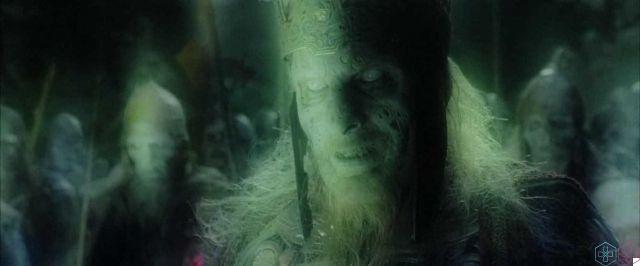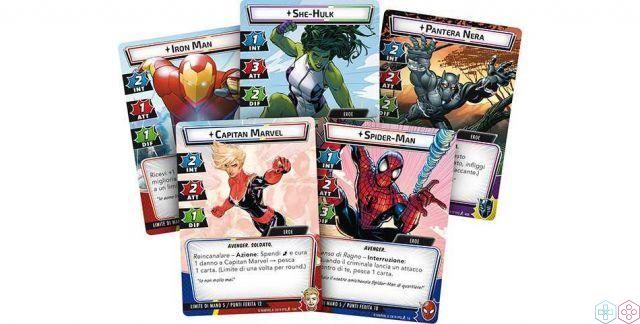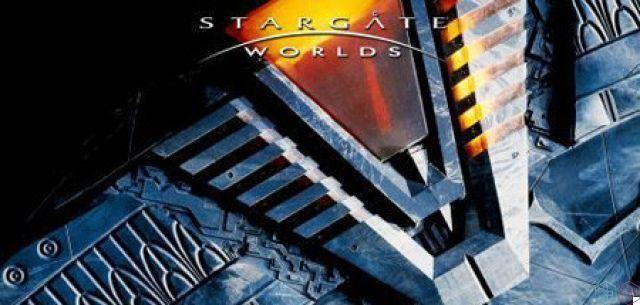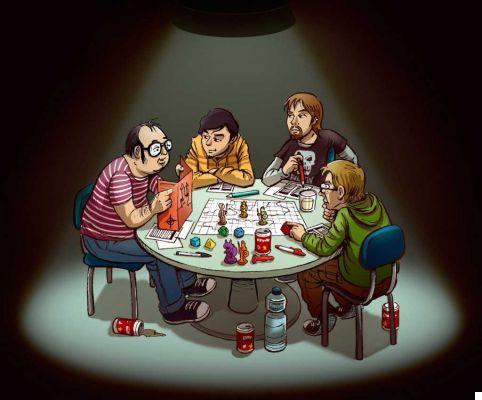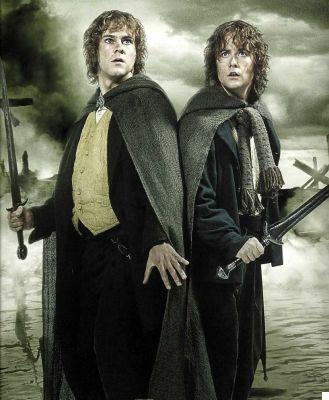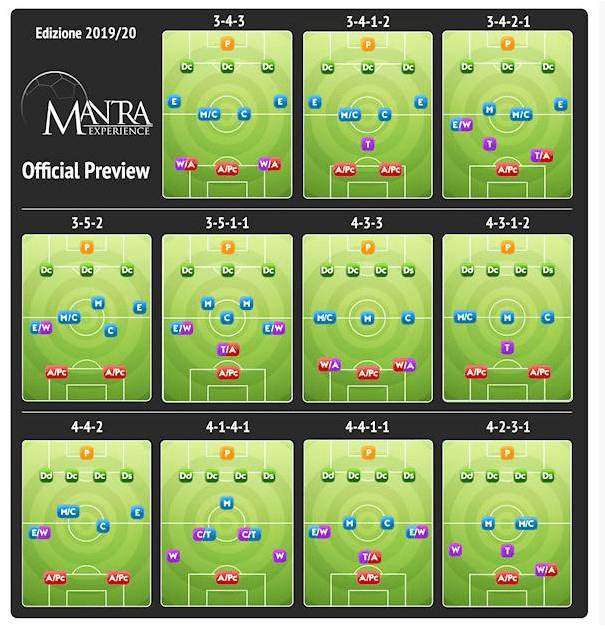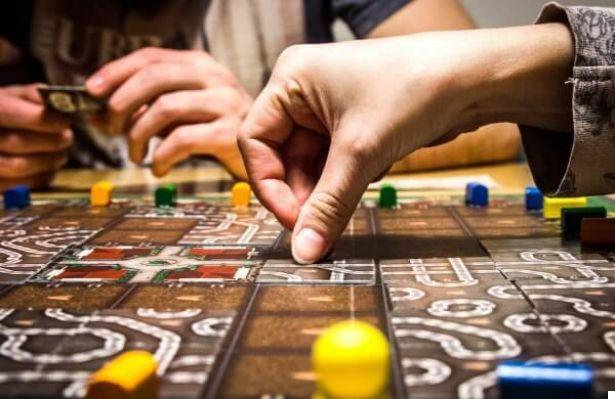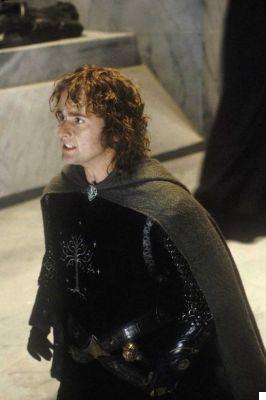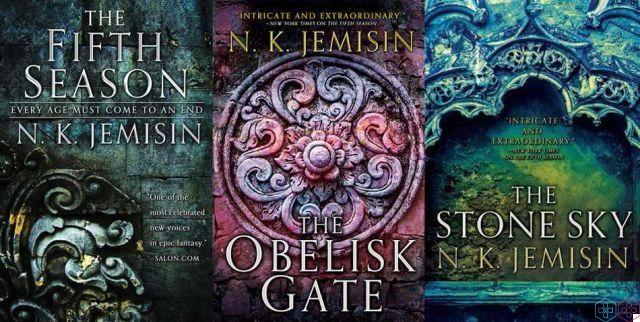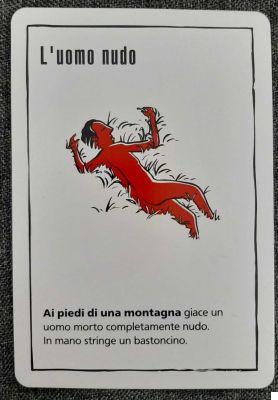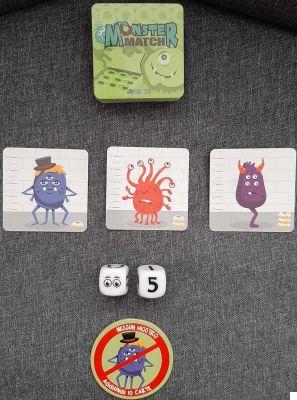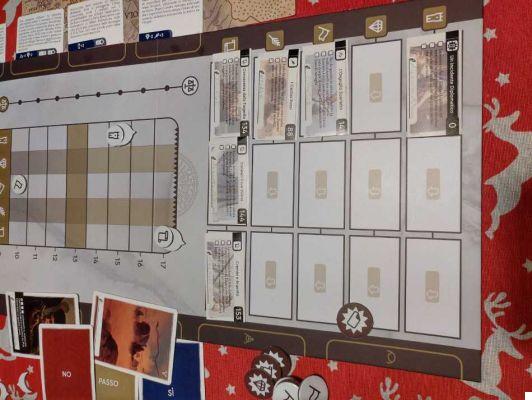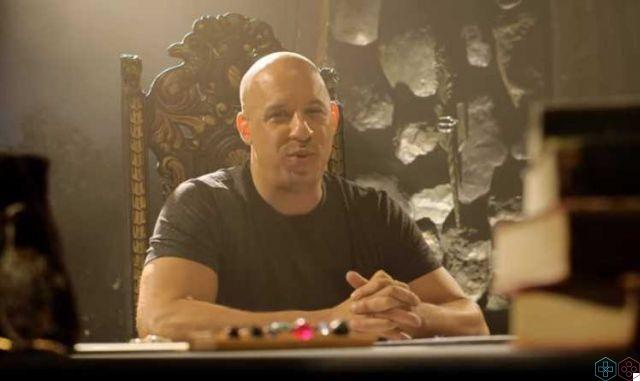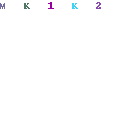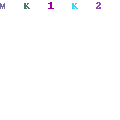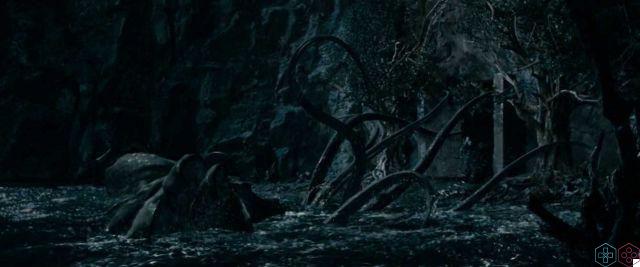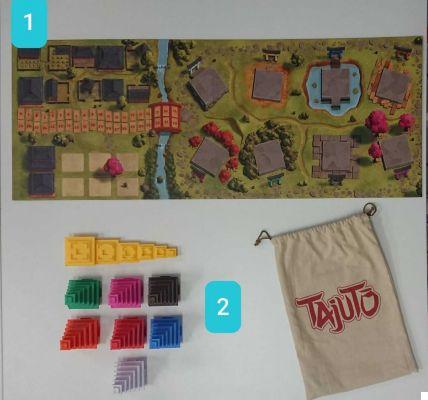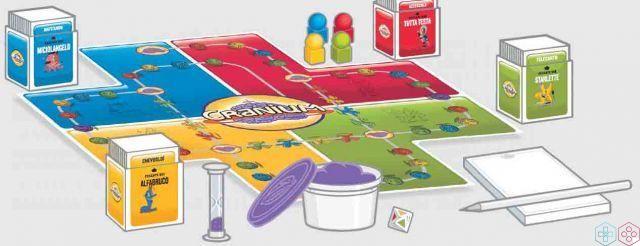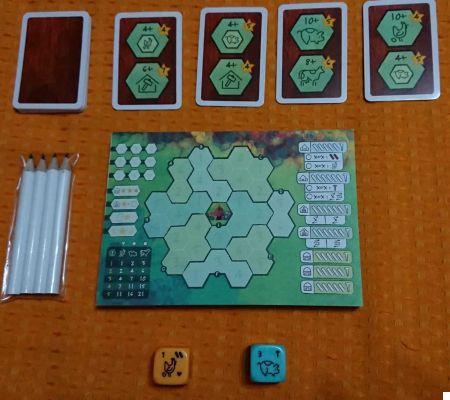Released at Modena Play 2019, Household immediately established itself as one of the most interesting and original Spanish products; enough to allow him to win the 2019 Gaming Award of the Year. Let's find out why in our review!
The first thing that catches our eye about Household is its descent into a very particular and fascinating setting. In fact, it is set inside the House, what we intuit from the manual is a large abandoned country mansion. Inside this House (seen just as if it were a continent) live four peoples of small humanoids called "Little men”Which have formed as many nations; each occupying a part of the house. The Fairies have settled in the dining room, the Boggarts in the living room, the Sprighi have occupied the first floor and finally the Slaughs are the masters of the cellar.
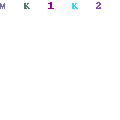
The House | Household Review
The House is not presented only from a geographical point of view, but also (and above all) historical. In fact, in Household it is designed to make the characters move in a certain well-defined historical period of 5 years; which also correspond to the 5 "levels" that a Little Man can obtain (we will resume this point in the next section dedicated to character creation). The history of the House is explored quite thoroughly and the manual also offers many storytelling insights for your sessions. What made me turn up my nose a little actually is the question of geography and distances; in fact, this point is never too clear and often the images in the manual contrast a little with what is the description of a certain place. This is justified narratively through a ploy with respect to which the distances and sizes are not fixed but vary with the knowledge that a little man has of them. Thus a place that belongs to us and over which we have control will appear smaller to us; the great mansion of a noble or a desert of sawdust will seem gigantic to us (relatively speaking).
A small note should be made on the method of "narration" of the manual by Household. In fact, it is not written as a normal manual but as a book (indeed a real RPG) written by a Boggart, a certain Herasmo J. Hemingway who will present us all the setting filtered by his vision of life in the House. Two Little Mice was shrewd in integrating Household's RPG mechanics into this narrative, blending them consistently with each other. Definitely a different (and successful) way of setting up a game manual, which will not fail to make more than a smile.
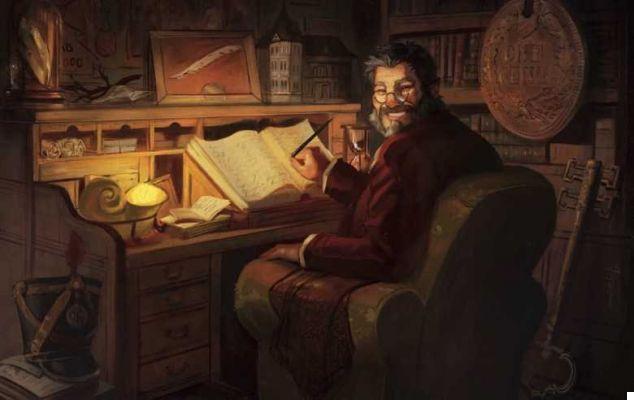
I personaggi | Review Household
In Household it will be possible to choose to play a Little Man belonging to one of the four Peoples who inhabit the House of the Master. The Fate they are slender men with wings; the Boggart instead they are much more massive and physically performing (and often considered less suitable for intellectual work due to prejudice); the You sprinkle they are divided into three ethnic groups based on the element to which they are related (and from which they were born): Sylphs for the air, Soladins for the fire and the Ondini for the water. Finally we find the Slaugh who are the most heterogeneous and variegated people, whose members are sometimes born with extremely particular traits.
Over the years, each people has formed its own nation; but the historical-political context of Household allows us to play a Little Man of a People belonging to any nation based on its background.

Interesting how the People we select do not provide any type of mechanics other than those of interpretation and the Hereditary Contract (which we will discuss later). In case our game table wants to adopt them, however, in the manual there is an optional rule called "Stereotypes" that allows you to have skill increases based on the chosen People.
The Professions | Household Review
Each Household character belongs to one Profession a choice of six; they are easily assumed to a class of more classic RPGs. They are soldier, scholar, hunter, criminal, duelist and rancher. Each provides (in addition to a broad narrative description) two main aspects of the character, namely Maneuvers e Traits. Maneuvers are what a profession can do in combat and are divided into attack and defense maneuvers depending on the phase of combat in which they can be used.
I Traits of a Profession, on the other hand, are skills that your character will gradually acquire during his journey through the various "levels", here called "Chapters". In fact, Household does not foresee that your character has a level in the classic sense of the RPG; each Chapter corresponds to a specific year related to the events that happen inside the House. Your character will “level up” in one year and the next, gaining skill boosts and additional Traits. The game is thus designed to make your Characters interact directly with the historical events that are described in the manual; indeed it actually leads us to think that it was our characters who triggered or resolved those events!
Build? No thanks
The creation of the Character as seen is extremely simple and easy, it will only take you a few minutes to fill in the form. On the other hand, however, this system creates Characters extremely linear and with very few customization options. In Household it is impossible to do any type of build and two characters of the same profession will be almost identical, except for skills and the Hereditary Contract. In my opinion this is not a flaw, as it spurs players to customize your character with roleplay rather than with the card. On the other hand, players who prefer a more balanced and "classic" experience may have their wings clipped (if you play a Fairy then it's a big problem).
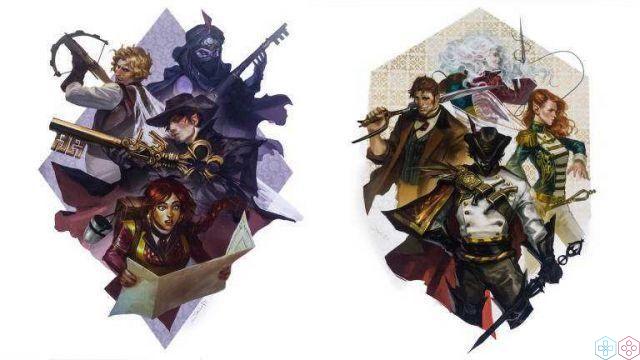
The Contracts | Household Review
Finally, the last aspect related to the Characters to be analyzed is that related to Contracts. They are pacts that are stipulated between a Little Man and a Force, or rather an ancestral entity that inhabits the House. Each People has a specific Contract stipulated with each of its members at birth. Contracts provide gameplay advantages for a Little Man, but they also require that some dictates are respected; thus avoiding to run into what the manual calls "Bad ugly things". Household does not specify well what these bad things are, giving a general description and leaving the reins in the hands of the narrator who thus obtains a powerful tool in terms of the game.
Contracts are not only hereditary ones, however, they can in fact also be obtained by individuals; stipulating them with particularly powerful creatures. Contracts are a narratively powerful mechanic, but I would have preferred it to be a little more in-depth, as you know, in my opinion, it leaves a little bit of space; although we speak in practice of the only form of "magic" within the game.
Game system | Household Review
The game system of HH is simple and intuitive: each character has in fact thirty skills (such as stealth, athletics and riding) which will be assigned a grade from 1 to 7. This rank represents the character's skill in this skill. When a player is asked for proof, as many six-sided dice are rolled as there are ranks in the chosen skill.
To achieve success in HH it will be necessary to obtain winning combinations with the results of the dice (pairs, three of a kind, five of a kind, etc.) to which a certain number of successes will be associated (for example, a pair is worth 1 success, a three of a kind 3 and a Cinquina 10). The successes obtained are then compared with the difficulty of the test (from 1 to 10 usually) and if the successes are equal to or greater than the test, then that test will be passed.
High risk, high reward
The Risk, which allows you to set aside winning combinations and try to reroll the remaining dice. If at least one other success is obtained, it is added to those already obtained; but if we get zero successes from a Risk we will lose a die of our winning combinations. This mechanic then ties into that of Raise the stakes, in which the Storyteller asks one of his players to take risks in order to obtain a better outcome on the test he has just passed. Both of these mechanics allow you to always keep the tension high during the sessions.
An extremely positive note is that every rule of the game system is explained with examples clear and precise that accompany the players step by step in acquiring the mechanics. A shrewdness that I would like to see also in the manuals of much more complicated games; this aspect is then further expanded in the second reprint of the game which presents an entire example of narration at the end of the manual.
The combat | Household Review
All the rules for the fights in the manual are enclosed in a handy appendix in the final part. HH's combat is highly narrative and won't require you to use any grids or tokens. Each fight is composed of two alternating phases, one for attack and one for defense. The Characters act simultaneously in the fight, without having a set turn and even the distances are managed narratively (rather than with meters).
During the attack phase a character makes a combat check and can spend the successes thus obtained to attack (comparing them to the enemy's defense). The extra Achievements thus obtained can be spent on activate the maneuvers attack of that particular character. Similarly, in the defense phase, each character makes a combat check to defend against enemy attacks (the opponent's attack value is a predetermined number on the enemy sheet). Here, too, extra successes can be spent to activate defensive maneuvers.
Although the fight is simple and abstract in reality it hides a depth that should not be underestimated. The ability to choose in which order to act both in attack and defense allows you to create elaborate tactics between the various players according to the situation. Furthermore, being able to put yourself "shoulder to shoulder" with your companions guarantees an additional strategic level which, however, does not weigh down the game and makes the alternation of phases always pleasant and never heavy.
Graphics, layout and drawings | Household Review
Aesthetically, the Household manual is well cared for in practically all its aspects. Let's start by describing the layout of the manual arranged on 2 columns per page. The text is written in a font of one size that makes reading fluent; also helped by the fact that the text of the columns is often spaced between one paragraph and another; a factor that gives breath to particularly dense pages and that greatly helps the search for information during a session.
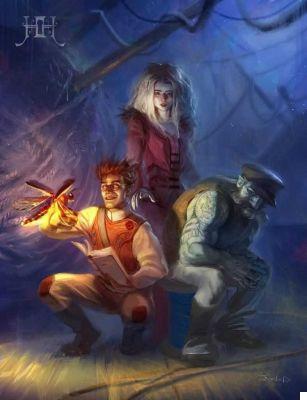
As for Daniela Bernardini's illustrations, I can only give an extremely positive judgment; the numerous drawings accompanying the reading of the manual are very evocative; moreover their style fits perfectly with the general tone of Household. Particularly appreciated is the fact that we have chosen to include many full-page illustrations or double splash pages. Every so often one gets the impression of leafing through an artbook rather than a manual; another point in favor of Household.
Conclusions
Household for being the first Two Little Mice product impressed me positively. In fact, the authors managed to create a classic but extremely original setting at the same time. The idea of using a House as a game world allows us to use many elements of our daily life through different and unexpected points of view. Who would have thought of turning a scolopendra or spiders into terrible monsters as deadly as a dragon or a troll? It is these elements that give Household a personality of its own that makes it stand out from the rest of the RPGs released so far.
The unfolding of the narrative through predetermined years may not appeal to all players; but in my opinion it represents a nice way to create stories in which our characters actually interact with the game world and with its most important historical events. The manual at least pushes us in this direction, a choice that I personally appreciated.
The game system, simple and focused on the "theater of the mind" is convincing rather than on a grid and never feels heavy. The choice to limit the choices regarding the building of the character to the bone will make the purists turn up their noses; but it allows us to focus on other aspects of the role-playing game that are more relevant in order to tell stories in line with the spirit of the game.
The verdict of the Household review? Ultimately, it's the perfect game for anyone who wants to start exploring this world beyond the Big names like Pathfinder or D&D.
8.8 Small Gdr, Big ResultsPoints in favor
- Familiar setting but seen from an original perspective
- Light but not shallow game system
- The style of the manual makes reading enjoyable
- The authors did not skimp on the illustrations
Points against
- Mechanical customization is stripped down to the bone, not everyone will like it
- The part on the Contracts could have been deepened further




